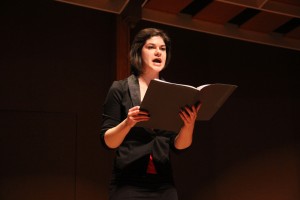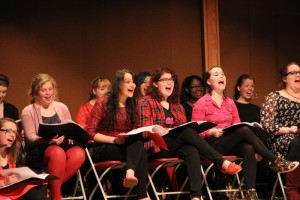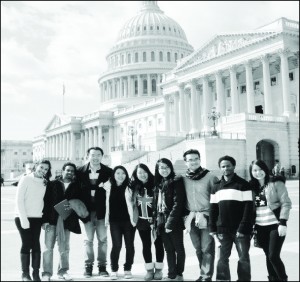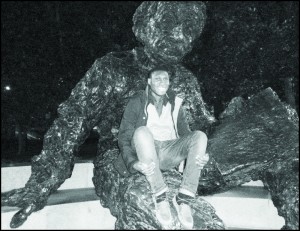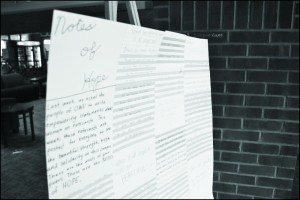By Tom Wolber
Associate Professor of MFL
Ohio Wesleyan students love fantasy novels. Many spend every free minute reading them. More than once I had to remind students at the beginning of the class that it was now time to put their books down. I can certainly relate to their passion.
When I was a teenager, I had a similar addiction to the adventure and fantasy novels by German author Karl May (1842-1912) to the extent that it worried my parents. Did they have a reason to be concerned? Yes and no, as I will explain.
Let’s explore the world of fantasy novels a bit. Obviously, this is a huge, albeit understudied, topic, and so I am focusing on but one popular author – Christopher Paolini and his now complete “Inheritance” series, consisting of the four novels “Eragon,” “Eldest,” “Brisingr” and “Inheritance.” In these books, the human spirit soars to the highest heights and the “divinity in man” (Thoreau) reveals itself in fullness. It would not be wrong, in my opinion, to call Eragon an avatar of Nietzsche’s “oversoul.”
Young Eragon (he is fifteen when we meet him) has grown up motherless and fatherless. He is poor and ignorant. He cannot read or write, although he has sharp eyes and is a good hunter.
And yet, at the end of the fourth book he has slain the evil king Galbatorix and risen to be the wisest and most powerful man in the empire, able to make peace and reconcile the warring races of humans, elves, dwarves, urgals and dragons. Once Galbatorix is dead, Eragon then lays the foundation to a new and better future in which the various races live in peace, harmony, mutual respect and admiration.
Catapulted into the chaos that rules the empire, the young protagonist has no choice but to learn quickly how to survive. Under the tutelage of experienced teachers and mentors, he studies swordfighting, the use of magic and several foreign languages.
A teacher myself, I love the books’ consistent emphasis on and appreciation of knowledge and wisdom. In fact, I am inclined to call the entire series an epistemological novel because the subject of knowledge acquisition is so prevalent. At one point, it is even stated that knowledge is sacred and must therefore be protected and preserved. Obviously, Paolini is a firm believer in the Enlightenment, its optimism, its humanistic values and its didactic methods. Eragon learns and learns and learns – everything from history and geography to mythology and philosophy.
From the Elves, he even learns about living sustainably and in harmony with nature. In the good old tradition of the German “Bildungsroman,” Eragon goes through the phases of apprentice and journeyman until he becomes a master himself. On his side is Saphira, his dragon, who similarly grows and matures into a wise and majestic being.
At no point are Eragon and Saphira seduced by the temptation and trappings of wealth or power. To be sure, there are numerous trials and tribulations for both of them, and there are discussions about the best tactics and strategy, but there is never any question about what is the right and the wrong path.
He and his dragon have no interest in self-promotion and self-aggrandizement. They only want to serve to the point of self-sacrifice, and in the end they retreat from political and military life altogether to teach the next generation of dragons and their riders.
I am not saying that Christopher Paolini is a great, original writer. But he is a memorable author with a strong message. Karl May, Tolkien, Rowling and Paolini are not merely entertainers; they explore and instill eternal values like human rights and social justice.
I am convinced that books of this nature can teach young, impressionable minds much about the difference between good and evil and the responsibilities of an individual to society, and humanity as a whole, whenever and wherever evil lurks.
Unfortunately, the world is full of Voldemorts and Galbatorixes and their political equivalents (Hitler and Stalin) who must be fought.
The struggle between good and evil, light and darkness, is one that never ends. This is, perhaps, the core value that Karl May instilled in me as a teenager.
His fantasy books provided a moral compass to me and millions of other readers that still guides me today, decades later. I would therefore disagree with Plato, who thought art, music and literature were nothing but big lies and useless dreams and that the state should therefore ban them. On the contrary, I would argue with German philosopher Ernst Bloch that fictional literature contains the seed for a more humane social order and can have a liberating, emancipating effect.
However, fantasy novels can, on occasion, also be a way to escape from the real world. They can become a form of “opium” (Marx). It is possible for readers to be so obsessed with literary characters that they begin to neglect their job or friends. If you are a fan of fantasy, do not allow that to happen. Do not ever skip class or work because you are unable to put your book down. You must be able to resist your craving, intoxication and dependency.
Consider self-imposing a daily limit to the time spent with your favorite novel. This way you will be able to extend the pleasure of keeping company with your imaginary friends even longer.
Not long ago, I had a student who knew and loved Christopher Paolini, but was unable to operate in the classroom and in the real world. Withdrawn into a dream world, he was essentially dysfunctional.
I tried to help him find or rebuild a meaningful connection between fact and fiction, the real world and his alternate world, but he had fallen into such a deep hole that I was unable to pull him back out.
A one-dimensional world uninformed by music, art and literature would be flawed and incomplete, but a mind without roots in reality would be equally lost and adrift.
The reciprocal relationship between the two must be maintained. As so often in life, there has to be a balance between the two.
That is what Paolini teaches us in his inspiring “Inheritance” series, among many other things. His books are a call for commitment and action, not for escapism and inaction.
You should read them some day, if you aren’t familiar with them already.




